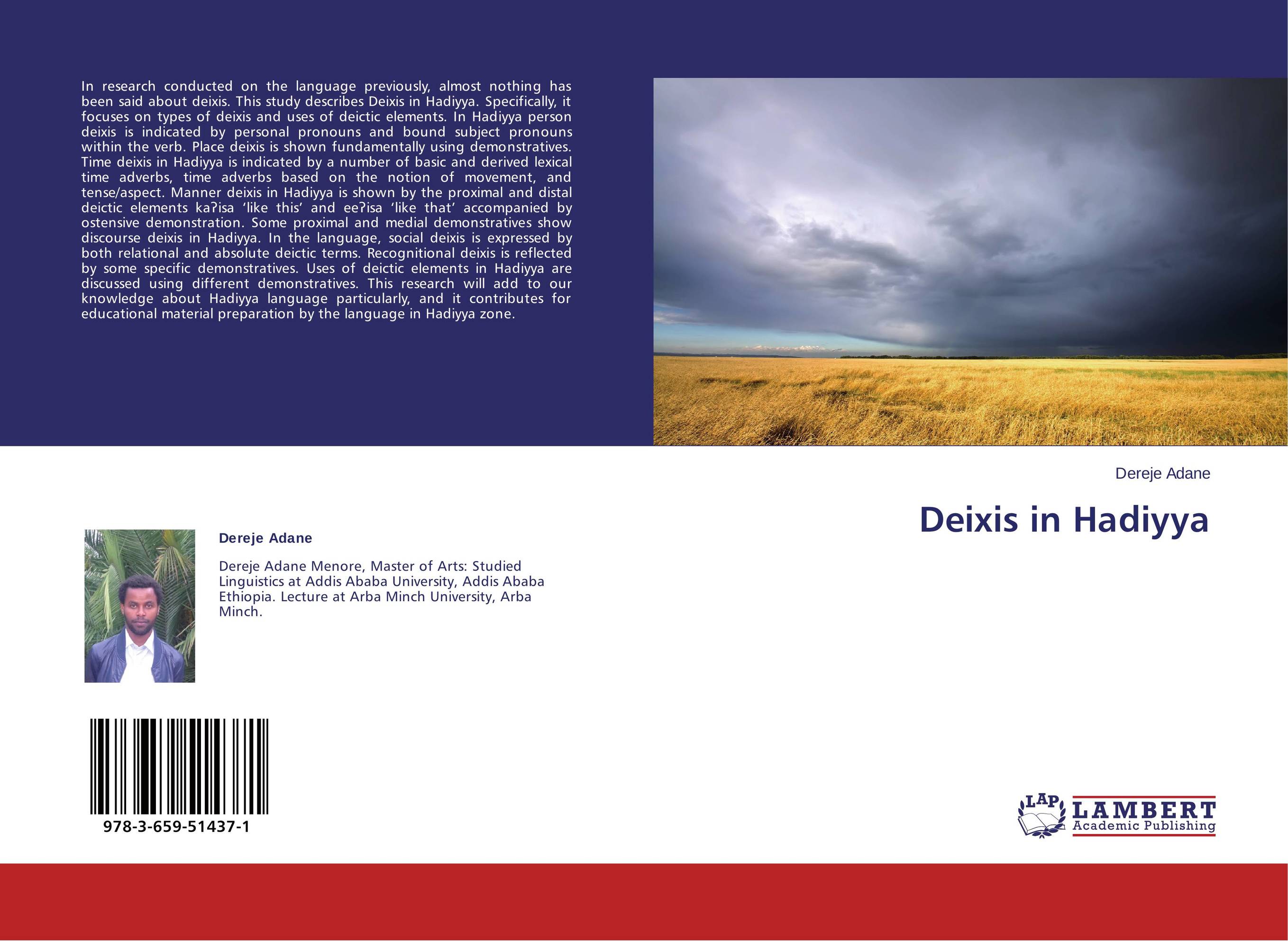| Поиск по каталогу |
|
(строгое соответствие)
|
- Профессиональная
- Научно-популярная
- Художественная
- Публицистика
- Детская
- Искусство
- Хобби, семья, дом
- Спорт
- Путеводители
- Блокноты, тетради, открытки
Deixis in Hadiyya.

В наличии
| Местонахождение: Алматы | Состояние экземпляра: новый |

Бумажная
версия
версия
Автор: Dereje Adane
ISBN: 9783659514371
Год издания: 2014
Формат книги: 60×90/16 (145×215 мм)
Количество страниц: 76
Издательство: LAP LAMBERT Academic Publishing
Цена: 23777 тг
Положить в корзину
Позиции в рубрикаторе
Отрасли знаний:Код товара: 131417
| Способы доставки в город Алматы * комплектация (срок до отгрузки) не более 2 рабочих дней |
| Самовывоз из города Алматы (пункты самовывоза партнёра CDEK) |
| Курьерская доставка CDEK из города Москва |
| Доставка Почтой России из города Москва |
Аннотация: In research conducted on the language previously, almost nothing has been said about deixis. This study describes Deixis in Hadiyya. Specifically, it focuses on types of deixis and uses of deictic elements. In Hadiyya person deixis is indicated by personal pronouns and bound subject pronouns within the verb. Place deixis is shown fundamentally using demonstratives. Time deixis in Hadiyya is indicated by a number of basic and derived lexical time adverbs, time adverbs based on the notion of movement, and tense/aspect. Manner deixis in Hadiyya is shown by the proximal and distal deictic elements ka?isa ‘like this’ and ee?isa ‘like that’ accompanied by ostensive demonstration. Some proximal and medial demonstratives show discourse deixis in Hadiyya. In the language, social deixis is expressed by both relational and absolute deictic terms. Recognitional deixis is reflected by some specific demonstratives. Uses of deictic elements in Hadiyya are discussed using different demonstratives. This research will add to our knowledge about Hadiyya language particularly, and it contributes for educational material preparation by the language in Hadiyya zone.
Ключевые слова: Deixis in Hadiyya, person deixis, place deixis, time deixis, manner deixis, discourse deixis, social deixis, recognitional deixis, uses of deictic elements



